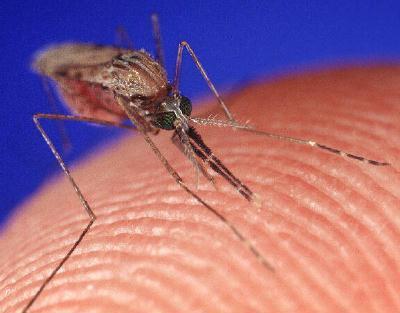
from GeneWatch UK
Environmental and civil society groups today warned the Brazilian regulator of genetically modified organisms (GMOs), CTNBio, not to approve commercial releases of GM mosquitoes in Brazil without full public consultation, access to conclusive field trials data and a post release monitoring plan. The groups cautioned that the consequences for human health and the environment are poorly understood and need to be further studied.
The GM Aedes aegypti mosquitoes are produced by UK company Oxitec and the decision follows extensive lobbying by the UK Government to try to create an export market for its products (1). The company, which has close links to the multinational agribusiness Syngenta, also has GM agricultural pests, such as GM fruit flies, at an experimental stage and approval for field trials are pending in Brazil.
“There are no data showing that this GM mosquito actually reduces dengue incidence. In the case it is approved for commercial use, the decision will have been based much more on propaganda than on concrete data from field studies”, said Gabriel Fernandes, advisor with the Brazilian organization AS-PTA.
“Oxitec’s ineffective and risky GM insects are a poor showcase for British exports to Brazil. A desperate desire to prop up British biotech and reward venture capital investors should not blind the UK and Brazilian governments to the risks of this technology”, said Dr Helen Wallace, Director of GeneWatch UK.
Oxitec has not yet published any conclusive results from its Brazilian trials, which began in February 2011. Results from earlier trials with the same GM mosquito in the Cayman Islands show that the technology is ineffective, requiring a predicted release of more than 7 million GM mosquitoes a week to suppress a wild population of only 20,000 mosquitoes initially, followed by an ongoing release ratio of 2.8 million a week (2). Numbers of mosquitoes in surrounding areas also appear to increase during the releases (3).
Releases of GM mosquitoes pose poorly understood risks to human health and the environment (4):
Oxitec’s experiments have included no monitoring of impacts on disease and the company has failed to consider possible negative impacts on the incidence of dengue or dengue hemorrhagic fever (the more serious form of the disease). This is a serious omission because dengue fever could be made worse if the technology is only partially or temporarily effective, due to complex effects on human immunity to the four types of dengue virus.
A major ecological risk is that numbers of Aedes albopictus (the Asian Tiger mosquito), which also carry dengue, may increase as a result of the releases and establish in new areas.
There are no published toxicity tests to show that swallowing GM mosquitoes or being bitten by surviving GM females is safe for humans, pets and wildlife.
The technology that limits reproduction of the GM mosquitoes is likely to break down if they encounter the common antibiotic tetracycline in the environment, or if they evolve resistance to the genetic killing mechanism over time. The offspring of Oxitec’s GM mosquitoes have a survival rate of 3%, but this rose to 18% when fed on cat food containing industrially farmed chicken which is contaminated with tetracycline. Tetracycline is used as a chemical switch for the genetic killing mechanism in order to allow breeding in the lab.
Oxitec has genetically modified a non-native strain of Aedes aegypti which may alter the transmission of dengue or other diseases where it is released. The mosquitoes’ disease transmission properties have not been tested and are likely to spread into the wild mosquito population.

